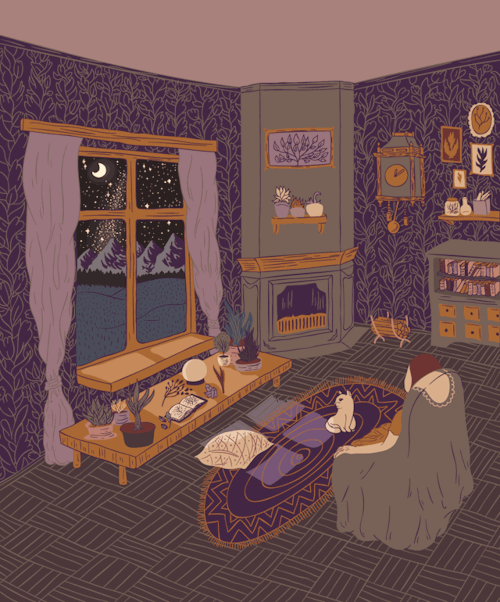What Is Autistic Masking, And How Does It Affect Mental Health?
What is autistic masking, and how does it affect mental health?
This is a common topic of discussion in the autistic community, but I haven’t ever written a post specifically about it before. So, here it is: a thorough explanation of what masking is, examples of it, what causes it, and why it can be harmful but sometimes necessary.
Masking is when autistic people disguise (mask) our autistic traits & behaviors, by replacing them with more “socially acceptable” (read: neurotypical) mannerisms and actions. Usually, we do this to fit into neurotypical social situations, including our schools and workplaces. Masking can require careful internal thought, and often results in a state of heightened vigilance and awareness of one’s body and how it is being perceived by others.
Autistic people are taught from a young age, whether by our families or by society at large, that the way we interact with the world is wrong. We are told that we need to look people in the eyes, smile and nod when spoken to by authority figures, sit still, and have “quiet hands.” All this, despite the fact that most of us find eye contact overwhelming, have to stim to meet our sensory needs, and find it easiest to communicate in unconventional ways.
We are taught that in order to be accepted by our peers, we have to mimic their mannerisms and speech patterns. We have to learn to fit in. Many of us try this, but it’s exhausting work. Things that seem to come naturally to other people are a constant, conscious effort on our part.
The absolute exhaustion and painful overload that happens when we mask can lead to awful meltdowns, and even long-term autistic burnout. When I was in kindergarten and elementary school, I masked all day. I didn’t let myself stim. I was a model student. I smiled and made eye contact with everyone. And when I got home, almost every day, I had massive meltdowns. Screaming, sobbing, violent meltdowns. Many of them lasted for 30 to 40 minutes, but some went on for 3 hours.
It was these meltdowns that led my parents to seek an autism diagnosis for me, which I received at 8 years old, after years of suffering from the effects of masking my autistic traits at school. Because I didn’t know I was autistic, I thought I should be acting like the neurotypical people around me. I wanted to please my teachers, and I wanted to make friends. I was extremely sensitive to criticism from teachers, so I did everything in my power to avoid it.
I distinctly remember seeing fellow autistic classmates with higher support needs wearing ear defenders, and wishing I had my own pair that I could wear to school. I wished that I could stim like them. I wished that I could have sensory breaks like them. But I couldn’t, because I wasn’t diagnosed, and besides: when you’re deemed “high functioning,” you’re expected to mask no matter what the cost is to your wellbeing.
My ability to mask, coupled with my extremely high measurable intelligence, was cause for me to be diagnosed with “mild, high functioning Aspergers.” Nevermind the fact that I still couldn’t bathe myself at 9 years old, that I had to be restrained by my parents for them to brush my teeth, or the fact that I continued to have meltdowns so violent that I broke several doors.
Because I was labeled “high functioning,” I was expected to mask my autistic traits at school and at home. But once I discovered that I was autistic, I rebelled against that mandate. At 9 years old, I started stimming more, exploring more comfortable speech patterns, and reconnecting with my senses. My parents told me to “stop acting more autistic.” But I was just rediscovering parts of myself I had lost.
Now that I’m older, I know myself. There are certain circumstances where I know that masking is a good idea, because otherwise I won’t be able to obtain certain educational or job opportunities. It’s an unfortunate reality that autistic mannerisms and behaviors are still seen as undesirable and unwanted in most professional settings.
So when I’m in those settings, I unmask as much as I can, when I can. I take vestibular stimming breaks in the bathroom. I vocal stim when other people aren’t around. I play with the rings on my hands.
But it’s still difficult. It’s still exhausting. It still takes a toll on me. I have to be aware of my posture, the position of my legs, the movements of my arms and hands, the nature of my facial expressions, the social appropriateness of my words, and more.
And that is why, more than anything, I want society to become more aware and accepting of autistic behavior and body language.
I want to live in a world where I can jump and flap and squeal in public, and instead of staring at me, people laugh and smile with joy. I want to live in a world where adults wearing ear defenders are taken seriously and treated with respect. I want to live in a world where autistic people of color are not at risk of being shot and killed for stimming or having meltdowns in public.
Unmasking will look different for everyone. But I want all of you to know that each public act of autistic expression is revolutionary. I want you to know that flapping your hands in the supermarket is a battle cry. I want you to know that wearing ear defenders in public is to wear a badge of honor. I want you to know that defying the rules in a world not built for you, standing your ground and existing despite attempts to make you disappear, is the bravest thing a person can do. We are warriors, and one day we will win. Remember that.
~Eden🐢
More Posts from Spectrum-speculation and Others
Sending suicide bait to somebody you know is suicidal is one of the lowest things you can do. Sending it proves your personality is nothing but a trail of slime between the dumpster you came from and wherever your trashy leaking ass is right now.
Thanks for proving your true character. You’re somebody who is both cruel and too spineless to put their name on what they say.
You’re cowardly bullies and nothing more.
To the people dealing with this kind of anon bullshit, you’re worth more than their trashy words want you to believe. Don’t give in to them. Rise above it. They choose hate. You don’t have to absorb their self loathing or reflect it back. You’re not a mirror or a black hole. You are a light and they are mere shadows hiding behind their gray masks.
I want to be the girl sitting in that chair

icebreaker

heartbreaker

PSA
i’ve been seeing this post a lot lately:

which means a whole lot of you don’t know the difference between an intrusive thought and an impulsive thought.
intrusive thoughts are a symptom of ocd and many other disorder, they are upsetting and often graphic, they are thoughts you do not want and that scare you, commonly thoughts about doing something violent or about abuse. i suffer from intrusive thoughts, they are triggering and upsetting and yes, dark or about killing people.
an impulse can also be a symptom of a disorder, impulses are not inherently bad and are just your brain telling you to do things with no thought as to why. some can be unpleasant, but they can also be things like “cut all your hair off” or “eat the cardboard”.
please stop saying that intrusive thoughts and impulses are the same thing, you are only adding to the stigma and misunderstanding people with intrusive thoughts face.
thank you.

Try Pogo!!
hi, any other autistic people really into heavy metal as a form of auditory stim? like the Busy-ness of it ends up being calming/grounding, and for me at least it also helps with focusing on work that doesn’t involve language, like math
Couldn’t say it better

I would be too!

Frederic Stuart Church
American, 1842-1924
“A Willing Captive”
-
 gogogoat495 liked this · 2 years ago
gogogoat495 liked this · 2 years ago -
 kpoppersblog liked this · 2 years ago
kpoppersblog liked this · 2 years ago -
 ghosts-and-blue-sweaters reblogged this · 2 years ago
ghosts-and-blue-sweaters reblogged this · 2 years ago -
 ghosts-and-blue-sweaters liked this · 2 years ago
ghosts-and-blue-sweaters liked this · 2 years ago -
 miraphoenix liked this · 2 years ago
miraphoenix liked this · 2 years ago -
 bavajadas reblogged this · 2 years ago
bavajadas reblogged this · 2 years ago -
 wartimepearl liked this · 2 years ago
wartimepearl liked this · 2 years ago -
 sinkme26 liked this · 2 years ago
sinkme26 liked this · 2 years ago -
 princessmovieticket liked this · 2 years ago
princessmovieticket liked this · 2 years ago -
 imbibyebi liked this · 2 years ago
imbibyebi liked this · 2 years ago -
 2amtechnicolor reblogged this · 2 years ago
2amtechnicolor reblogged this · 2 years ago -
 2amtechnicolor liked this · 2 years ago
2amtechnicolor liked this · 2 years ago -
 moon-princess117 liked this · 2 years ago
moon-princess117 liked this · 2 years ago -
 autistic-efu reblogged this · 2 years ago
autistic-efu reblogged this · 2 years ago -
 cinnamon-and-whitenoise reblogged this · 2 years ago
cinnamon-and-whitenoise reblogged this · 2 years ago -
 dandymaximilian liked this · 3 years ago
dandymaximilian liked this · 3 years ago -
 howling--mouse liked this · 3 years ago
howling--mouse liked this · 3 years ago -
 critteronimo liked this · 3 years ago
critteronimo liked this · 3 years ago -
 kvaleksy liked this · 3 years ago
kvaleksy liked this · 3 years ago -
 idk-man-i-dont-use-this-blog liked this · 3 years ago
idk-man-i-dont-use-this-blog liked this · 3 years ago -
 abyssalyouth liked this · 3 years ago
abyssalyouth liked this · 3 years ago -
 infamouslyclumsy reblogged this · 3 years ago
infamouslyclumsy reblogged this · 3 years ago -
 infamouslyclumsy liked this · 3 years ago
infamouslyclumsy liked this · 3 years ago -
 theblackcatscratchpost liked this · 3 years ago
theblackcatscratchpost liked this · 3 years ago -
 221buckythesoldier liked this · 3 years ago
221buckythesoldier liked this · 3 years ago -
 starsparkles21 liked this · 3 years ago
starsparkles21 liked this · 3 years ago -
 mantonstreet liked this · 3 years ago
mantonstreet liked this · 3 years ago -
 aldwynbob liked this · 3 years ago
aldwynbob liked this · 3 years ago -
 25kitkat liked this · 3 years ago
25kitkat liked this · 3 years ago -
 a-concert-just-for-me liked this · 3 years ago
a-concert-just-for-me liked this · 3 years ago -
 losafaifos liked this · 3 years ago
losafaifos liked this · 3 years ago -
 dragonflapper liked this · 3 years ago
dragonflapper liked this · 3 years ago -
 yourfavfivefictive liked this · 3 years ago
yourfavfivefictive liked this · 3 years ago -
 andii2602 liked this · 3 years ago
andii2602 liked this · 3 years ago -
 mmcherries reblogged this · 3 years ago
mmcherries reblogged this · 3 years ago -
 12rabbits1trenchcoat liked this · 3 years ago
12rabbits1trenchcoat liked this · 3 years ago -
 earthtime liked this · 3 years ago
earthtime liked this · 3 years ago -
 frankenstitched-crow liked this · 3 years ago
frankenstitched-crow liked this · 3 years ago -
 disarrayedbeauty liked this · 3 years ago
disarrayedbeauty liked this · 3 years ago -
 treacherous-dwarf-of-the-seas liked this · 3 years ago
treacherous-dwarf-of-the-seas liked this · 3 years ago
